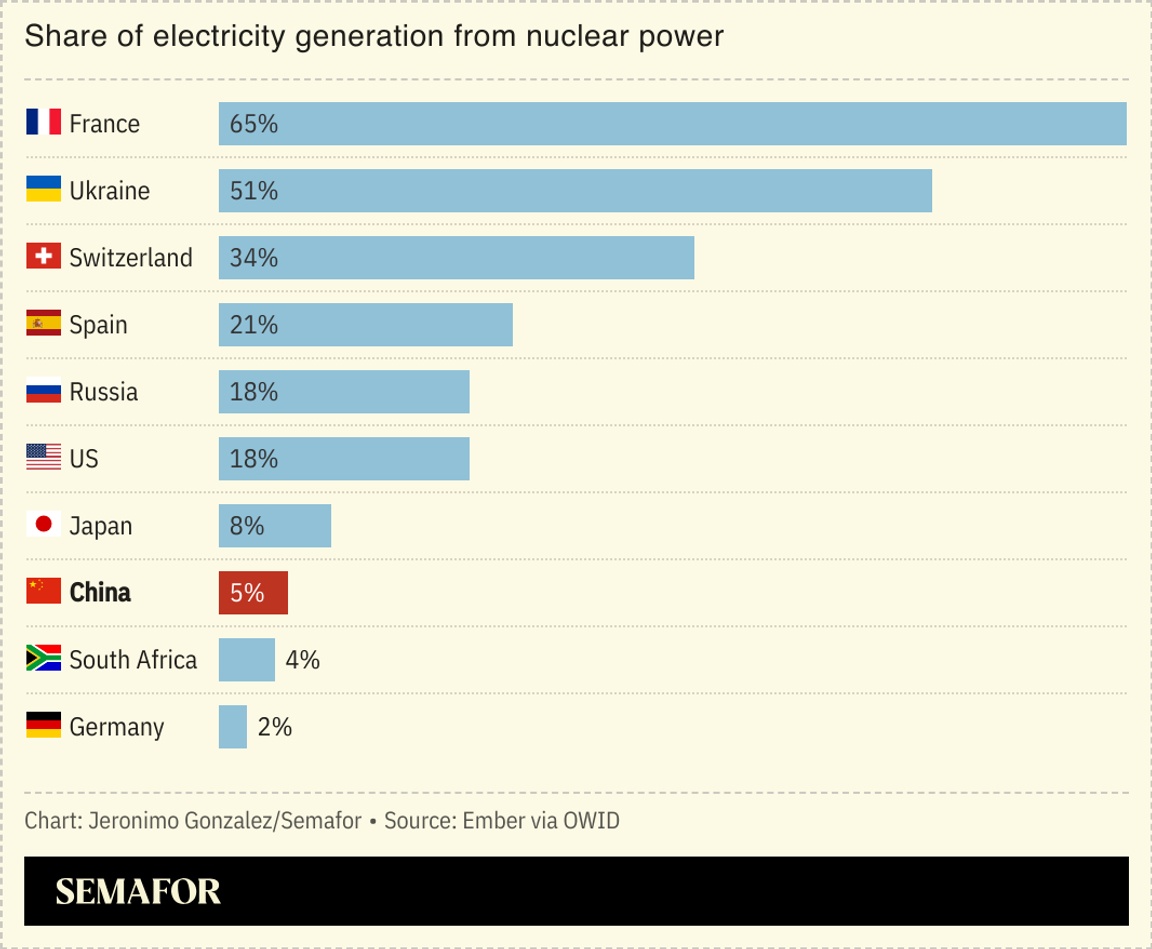 China could approve 100 new nuclear reactors over the next 10 years, according to its state-run industry body. The country has added 34 gigawatts of nuclear capacity in a decade, enough to power 30 million homes, and approved 11 additional plants this year, putting it on course to have the biggest nuclear sector in the world by 2030. The economist Adam Tooze, writing in the Financial Times, said that China is now the world’s climate leader: “America’s preferred energy policy is more, more, more, as cheaply as possible,” he wrote, whether oil, gas, or renewables, and President-elect Donald Trump is skeptical of environmental concerns, but China “has mastered the green energy supply chain.” |